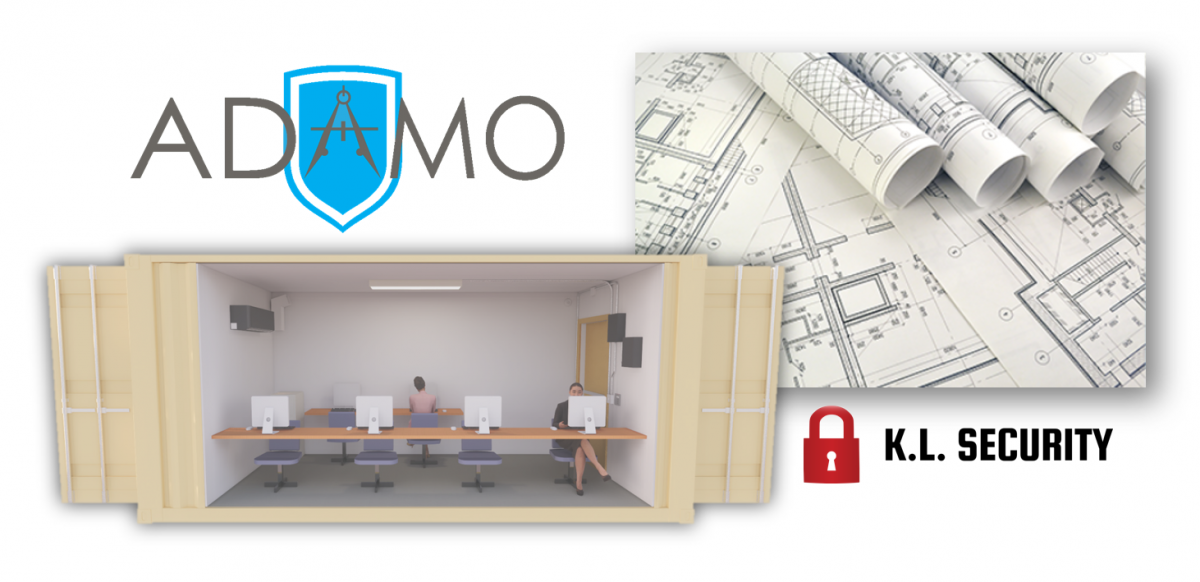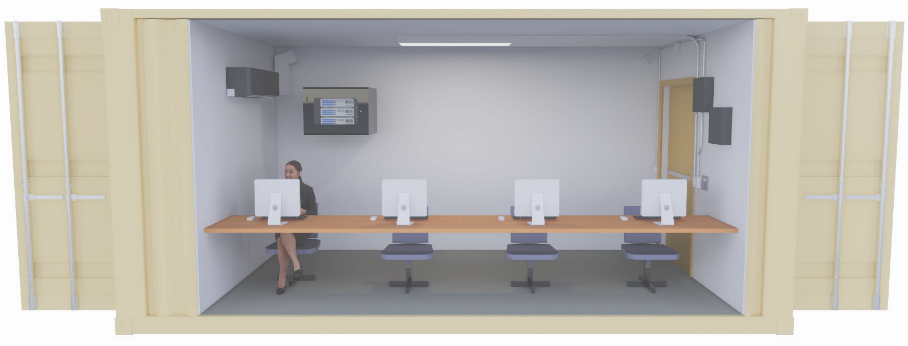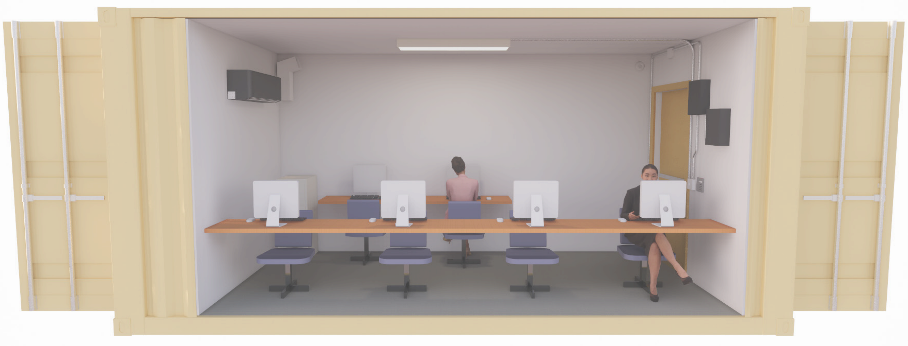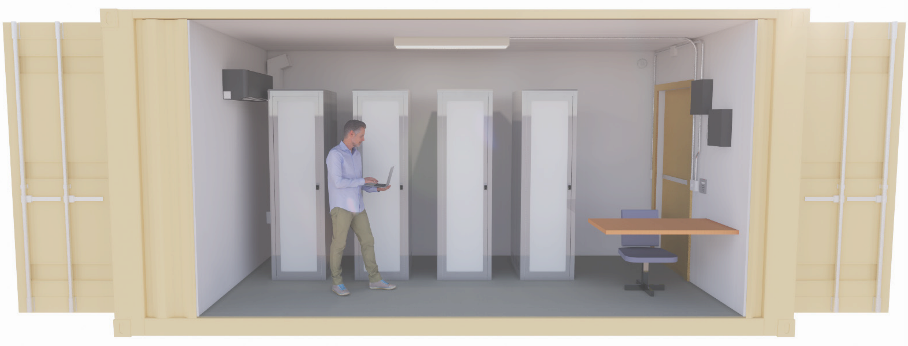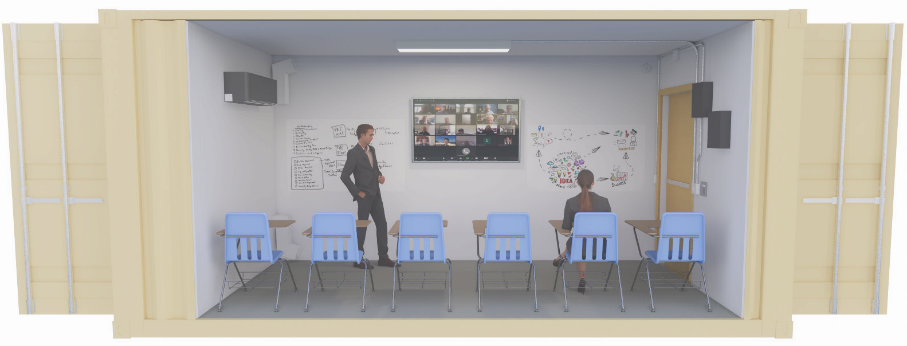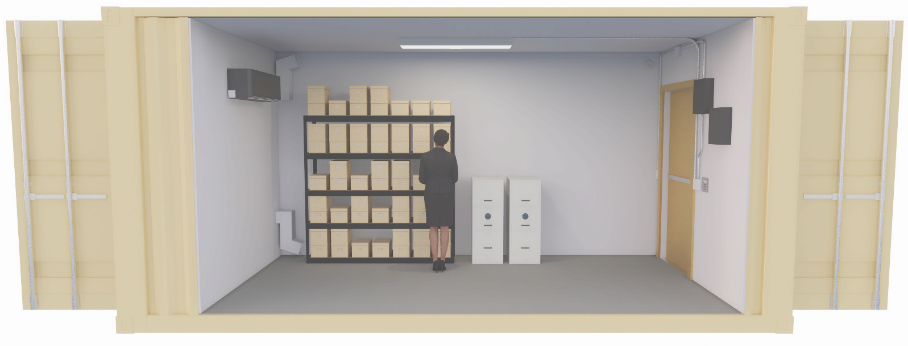By: Colene King
SCIF and SAPF high security facilities appear identical and are used for the same function: to store, utilize, and discuss sensitive information. Their delineation occurs in their intended user.
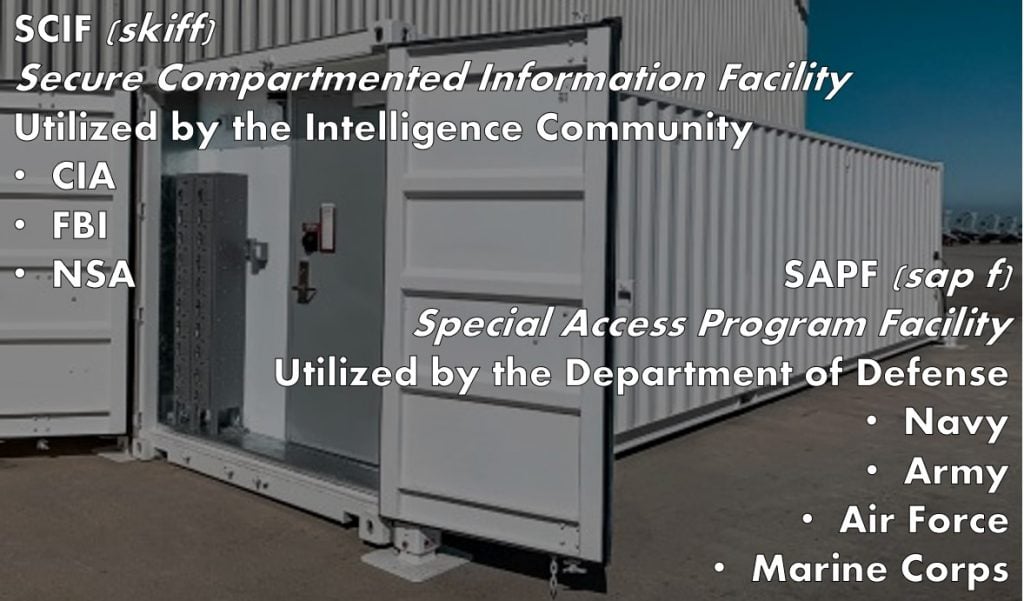
When it comes to the construction of new SCIFs and SAPFs, there are strict guidelines that must be followed. These guidelines are laid out in the ICD 705 Technical Specifications (Tech Spec, for short). The Office of the Director of National Intelligence (ODNI) establishes the guidelines & standards set forth in the ICD 705. ODNI is responsible for the management, processing, and safeguarding of information for the United States.
Some of the construction items covered in the ICD 705 include:
- Physical Security and Hardening
- Acoustic Controls
- Visual Controls
- Alarms and Access Control
- Electronic and TEMPEST Security
Prior to the roll out of the ICD 705 (2010), SCIFs and SAPFs were built with different standards and processes. When the Tech Spec came out, it created a set of mutually accepted standards to ensure the safeguarding of national security.
In 2004, the Department of Defense began using their own set of standards and processes for SAPFs to protect national security. The DoD followed the guidelines of a document titled JAFAN 6/9.
The intelligence community, on the other hand, had a different set of standards prior to the ICD 705 being released. Beyond that, each agency within the intelligence community followed their own set of standards when it came to classified information. This made it nearly impossible to repurpose a SCIF to be used by another agency. The facility would need to undergo a significant renovation to become usable by the new agency.
When the ICD 705 was created in 2010, each agency in the intelligence community adopted these standards. The adoption of uniform standards within the ICD 705 allowed SCIFs to be easily repurposed between agencies.
However, the DoD was a later adopter; it took six years for this organization to implement the Tech Specs. In 2016, the Department of Defense integrated ICD 705 into their own 5205.7 manual. This created more reciprocity between the Department of Defense and the Intelligence Community.
SCIFs and SAPFs are now both built to the same standards, however, some procedural standards for facility accreditation don’t align. Each facility appoints an Accrediting Official; this delegate is responsible for accrediting the space and entering the facility’s information into the national repository.
Although SCIFs and SAPFs aren’t identical, they are more reciprocal now than they’ve ever been. Whether you are looking for a SCIF or a SAPF, KL Security is here to help you along the way. You can trust us to stay current will any and all construction standards required to safeguard sensitive information.
For more information or to request a quote
Call 866-867-0306 or email [email protected]


